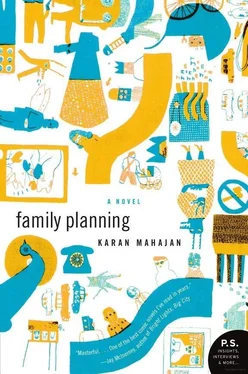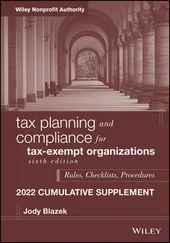Rupa chortled and Rakesh winced. He still had no idea what Rupa was talking about. If he had listened to his wife even once when they went about their rare joint tasks — containing a mushroom cloud of shit blooming in a two-year-old’s diaper, floating side-by-side the soft pontoons of the babies in a bathing bucket, carefully labeling each milk bottle in the fridge — he would have known not only the name of the TV show The Vengeful Daughter-in-Law but also the life-story, dental history, constipation woes, and general meal-size of the fictitious Bedi family.
But he never listened to her; he hated her mindless entertainments; all he carried in his mind was the first hint of familiarity. Mohan Bedi was a known name and an unknown quantity.
Even that was okay: what truly annoyed Mr. Ahuja was that no one in his party had bothered informing him about the mass resignation. Yes: why hadn’t anyone told him? He felt abandoned, sidelined, out of the loop, betrayed. He did think of his colleagues as family — so intensely in fact that his alienation was that of an adolescent. Overfamiliarity was the only way Rakesh knew to make friends; he was as deeply personal in friendship as he was in revenge. It had begun when he had told the SPM: Look, my children don’t have anyone except their parents. My whole family is gone. I was an only child. My father was an only child. No grandparents on either side. They love you. They want you to be their Dadi. Over time, the children had become a cult; Rakesh’s party had become a family. Governors and chief ministers and party secretaries and freedom fighters and judges were known not by name but by their prefixes: Mama, Mami, Dada, Dadi, Chacha, Chachi, Taiji, so on. They appeared at the children’s birthdays, liquored up, twisting their cake-drenched paper plates into half-moons, kicking up divots of grass with their sharp-heeled slippers, sweating till they were desiccated into shadows. They made fools of themselves with baby-talk. You saw in their eyes their own loneliness — how they had come all the way to Delhi to rule the country and left behind their families, their people in distant villages.
How many times had he stormed a stuffy politician with the light brigade of his children, their hands all falling at the respected elder’s feet in veneration? How many times had he left in the middle of an embarrassing meeting, citing the outbreak of a minor epidemic in his house? How many times had his children smuggled in chocolates for a politician on a hunger strike?
He’d fix them. He’d make a grab for power.
“Rupa-ji, I would never resign over something so petty, as you know. I think this is absurd. I have stood apart from the party with a very pointed purpose. However, I too have needs. I too have one request: suspend Yograj. He has been interfering with the Flyover Fast-Track on all levels. Please consider my letter and suspend him.”
“Arre, Ahuja. I can’t simply accept Vineet’s resignation at the moment,” Rupa said. “He’s holding this entire stupid opposition to me together.”
“Very well then, Rupa-ji. I respect your decision even as I disagree with it. I hope you know I am hundred percent behind you on the issue of the mass resignation. We can talk about Vineet when things calm down.”
It was only when Rakesh walked out, waved to his driver, watched a renegade wind slap up a curtain of dust that then went sailing right into his beleaguered nostrils, that he took a sneeze out of his day to congratulate himself. He had Rupa in his pocket. All he had to do now was confront his party members.
CHAPTER 15. BACKHANDED COMPLIMENTS
TTHUS, AT THE MEETING OF PAY SCALES — where thirteen “resigned” Members of Parliament were in attendance around a beveled table — Rakesh made his displeasure clear. “Why did the news of this so-called mass resignation come to me so late, please tell me? I know there is this impression I am personally building each flyover by hand and that all thirteen of my children are operating the machinery and that I must not be disturbed, but you know, even an artist like me must be fully immersed in the real world. There are a thousand ways for me to be reached. One can try one of the twelve cell phones my staff has. Even buggers, low-ranked IAS buggers can reach me. Then there are a thousand pigeons that migrate between my office and my house. One can tie a locket around one of their green necks. One can e-mail me. You can even call up and tell my children. So?”
The enormous difficulty of delivering such a speech was best highlighted by the number of times cell phones rang and were answered during its delivery: nine.
Unfortunately, the first person to respond was none other than Rakesh’s famed nemesis and favored resignation subject, Vineet Yograj. “Where were you at five o’clock? Yesterday?” Yograj asked in his eager, friendly, gruff manner. He was a man with a teak-dark face and an onion-shaped white goatee who was renowned for grilling anyone he met. “You are very busy with Flyover Fast-Track correct? Working overtime? No time for us these days, Rakesh-ji?”
Rakesh puffed out his chest and said, “Vineet-saahb has thrown open the proceedings with his trademark interrogation. Anyone else?”
“But Rakesh-ji, why were you not at the cabinet meeting?” said Vineet, unfazed. He was sitting two seats to Rakesh’s right. He opened his clenched fists. “Before I forget! I have brought cardamom for all of you. Please take some. I’ve bought it fresh from Kerela. It has great medicinal value.”
Vineet’s ploy paid off. The female MPs across the table leaned toward him, thus affording him a better view of their bloused breasts as he rolled the green pods of cardamom into their outstretched hands. The transaction thus completed, the pods were passed around the table. Only Rakesh pulled back stiffly into his seat and said with a smirk, “No thank you, ji. This is exactly why I don’t attend cabinet meetings. God knows what poison Vineet-saahb you will feed us.”
“The reason Vineet-ji is asking,” said an MP, “is that we reached a consensus after the cabinet meeting only.”
“What at the cabinet meeting?” said Rakesh, putting a hand beside his ear. “The bill?”
“No. Consensus , ji.”
Rakesh slapped the table. “But you weren’t even there, Iyenger-saahb.”
Iyenger was not a cabinet minister.
“But we met outside the room. After Madam Rupa-ji left. After Madam was out of sight.”
“Out of sight, out of mind, isn’t it?” said Rakesh. “Apparently, the same thing happened to me. I could not attend the cabinet meeting because I had to talk to a delegation of American planners — what can one do? Such commitments are always there. Now. I have offered my excuse. What about you? Why didn’t I hear?”
He looked threateningly around the room at the junior MPs, eyebrows grossly bunched, left hand turning a spoon in his cup of tea so that it sounded like the ringing of a school bell. The sandstone building let in a slice of sun and gust after gust of air. The light — low-density, orange — filled the spaces between men and women, expanded, flamed against the contours of the room so that the Savarkar Room felt to Mr. Ahuja like a dirigible plunged by accident of speed and latitude into perpetual afternoon. Not surprising, then, that Mr. Ahuja — having had a sleepless night — felt tired, jet-lagged, and not at all in the mood for the flattery the junior MPs began dishing out.
One MP said, “According to me, Rakesh-ji, there are two reasons. One is that I thought you would hear eventually — which it seems you did. And two, ji — this is the highest compliment I can give — I think you are above politics. That is why I did not call.”
Читать дальше












